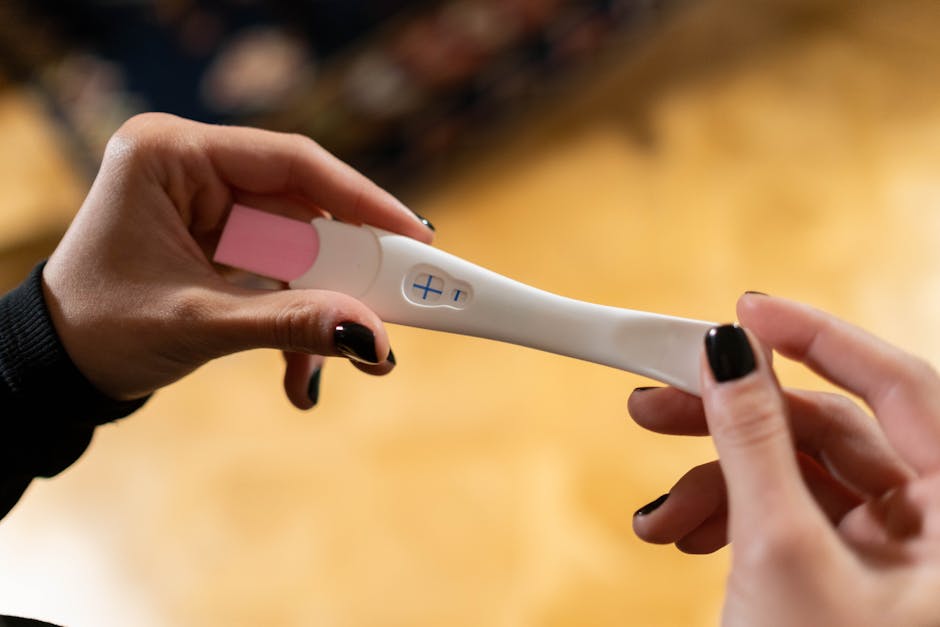The Complete Guide to Using Pregnancy Tests Effectively

Discovering you might be pregnant can be an emotional rollercoaster. Whether you’re eagerly awaiting a positive result or anxiously hoping for a negative one, understanding how to use pregnancy tests effectively is crucial. This guide demystifies the process, offering you the knowledge to navigate this pivotal moment with confidence.
Understanding How Pregnancy Tests Work
At their core, pregnancy tests detect the presence of human chorionic gonadotropin (hCG), a hormone produced after a fertilized egg attaches to the wall of your uterus. This process typically happens about six days after fertilization, with levels of hCG increasing rapidly each day. By understanding this, you can better interpret the timing and accuracy of pregnancy test results.
There are two main types of pregnancy tests – urine tests and blood tests. Urine tests can be performed at home or in a doctor’s office, while blood tests are conducted exclusively in clinical settings. Each has its advantages, but home urine tests are the most common due to their convenience and quick results.
The Best Time to Take a Pregnancy Test
Timing is everything when it comes to taking a pregnancy test. For the most accurate results, it’s recommended to wait until after you’ve missed your period. Testing too early, especially before your period is due, can result in a false-negative due to insufficient levels of hCG. If you’re unsure, waiting a week and retesting can provide you with a clearer answer.
Reading Results Accurately: Avoiding Common Mistakes
Interpreting the results of a pregnancy test can feel daunting, but it’s crucial to follow the instructions precisely. Common mistakes include not waiting long enough for the results, checking the results past the recommended timeframe, and incorrect handling of the test. To avoid these errors, set a timer and read the instructions thoroughly before starting the test.
Moreover, varyingly faint lines on the test can also lead to confusion. A faint positive line typically indicates pregnancy, as hCG is present. However, if doubts remain, repeating the test in a few days or consulting a healthcare provider for a blood test can offer you peace of mind and clarity.
Different Types of Pregnancy Tests and How to Choose
The array of pregnancy tests on the market can seem baffling, ranging from digital tests to traditional dye-based tests. Digital tests provide a straightforward ‘Pregnant’ or ‘Not Pregnant’ result, making them easier to read for many. On the other hand, dye-based tests, which show lines to indicate results, are often less expensive and equally effective.
Your choice might depend on personal preference or how close you are to your expected period. Digital tests, while more expensive, can detect lower levels of hCG and might be more suitable for early testing. It’s also wise to consider buying in bulk if you anticipate needing multiple tests, as this can be more cost-effective in the long run.
When to See a Doctor After a Positive Pregnancy Test
A positive pregnancy test is a clear indicator it’s time to make an appointment with your healthcare provider. They can confirm the pregnancy with a blood test and/or an ultrasound, and discuss next steps in prenatal care. This is also a great opportunity to address any questions or concerns you might have about your pregnancy journey.
Frequently Asked Questions on Pregnancy Tests
Many people have questions about pregnancy tests, and rightfully so. Questions range from ‘How early can I take a pregnancy test?’ to ‘Can anything interfere with the results?’. Drugs or medications typically do not affect the result of a urine pregnancy test, including birth control. However, certain medical conditions can cause false positives or negatives, making it important to follow up with a healthcare provider for confirmation and guidance.
Embracing the Journey with Confidence
Navigating the world of pregnancy tests can feel overwhelming, but armed with the right knowledge, you can approach this step with assurance. Remember, regardless of the outcome, taking a pregnancy test is a significant moment in your life. Whether it’s the start of a new journey towards parenthood or a prompt to reflect on your health and options, know that resources and support are available to guide you through whatever comes next.











